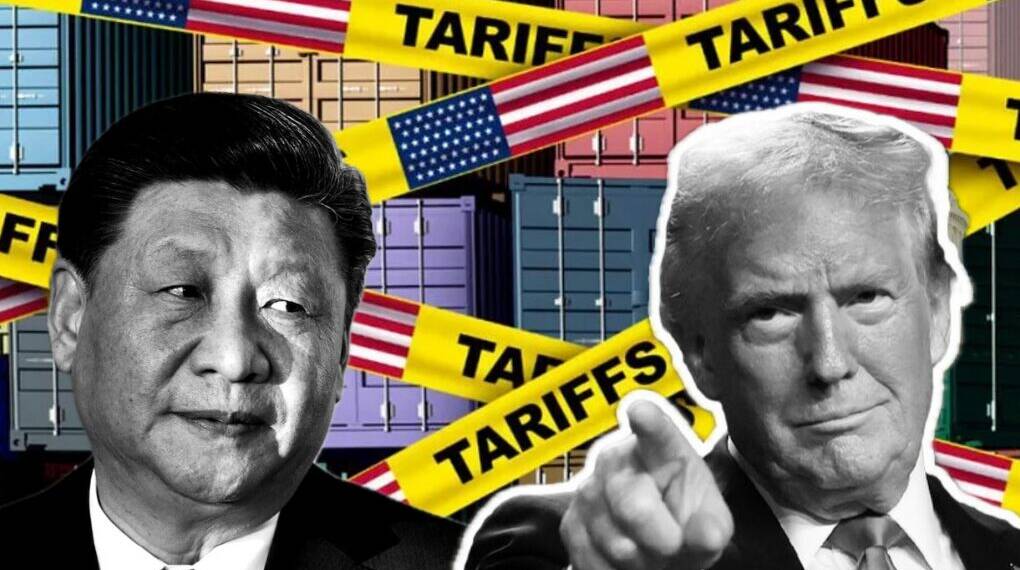U.S. President Donald Trump has sharpened his rhetoric toward Beijing, warning that if China restricts rare-earth magnet exports, his administration could impose tariffs as steep as 200 percent. The remarks, delivered after his White House meeting with South Korean President Lee Jae Myung, highlight how strategic minerals have become a focal point in the already fragile trade relationship between the world’s two largest economies.
“They have to give us magnets,” Trump told reporters bluntly. “If they don’t, then we’ll have to charge them massive tariffs—maybe 200 percent or something.”
The comment underscores how dependent the U.S. remains on China for rare-earth supply chains. At the same time, it signals Washington’s willingness to use aircraft parts and other trade tools as leverage to counter what it sees as Beijing’s monopolistic grip on critical materials.
Rare Earths: Strategic Minerals With Global Implications
Rare-earth magnets are not just industrial inputs; they are essential for modern economies. From electric vehicles and smartphones to wind turbines and military equipment, these magnets are deeply embedded in advanced manufacturing. China currently dominates this market, producing nearly 90 percent of global supply and holding similar dominance in refining.
This supremacy allows Beijing enormous bargaining power. Restrictions on magnet exports could disrupt entire sectors of the U.S. economy. Trump’s threat to retaliate with sharp tariffs is therefore both a negotiation tactic and an acknowledgment of America’s vulnerability in this field.
Aviation Industry as Counter-Leverage
Interestingly, Trump pointed to airplane parts as a bargaining chip of equal significance. “Two hundred of their planes were unable to fly because we weren’t giving them Boeing parts deliberately—because they weren’t sending us magnets,” he claimed.
His statement comes amid reports that Boeing is negotiating a major deal with China, potentially supplying up to 500 aircraft. The aircraft industry, worth hundreds of billions, is now emerging as a parallel battleground to magnets, and both sides recognize how concessions in one sector could be traded for gains in another.
Exports Rebound but Questions Linger
Recent trade data shows that despite earlier curbs, China’s rare-earth shipments have rebounded strongly. U.S. imports of magnets surged more than 600 percent in June compared to May, with July volumes continuing to climb. This recovery suggests Beijing is at least temporarily easing restrictions as part of ongoing trade talks.
However, the balance remains precarious. Even with rising shipments, the specter of renewed export controls keeps American manufacturers—and policymakers—in a state of uncertainty. For the White House, tariffs act as both a deterrent and a bargaining chip in future negotiations.
Experts Caution Against Taking Trump’s Words at Face Value
Not everyone interprets Trump’s remarks as an imminent policy shift. Henry Wang, founder of the Beijing-based think tank Center for China & Globalization, argued that the U.S. President’s tone is more performative than substantive. “He’s bluffing,” Wang said. “He often talks big on tariffs or punishment, but these comments are part of negotiation theatrics.”
According to Wang, the real test lies not in fiery rhetoric but in whether both sides can follow through on their commitments—particularly the trade framework established earlier this year, which included easing restrictions on Chinese rare-earth exports and loosening U.S. restrictions on technology shipments to China.
Temporary Truce, Looming Deadline
That framework has allowed Washington and Beijing to temporarily reduce tariffs, with U.S. duties falling to around 55 percent on Chinese goods, while China lowered its tariffs on American products to about 32 percent. Yet this fragile ceasefire is set to expire in mid-November. Unless both governments reach a more permanent arrangement, the threat of tariff escalation looms large.
The next few months will therefore be crucial. Beijing is dispatching senior trade negotiator Li Chenggang to Washington for talks with U.S. Trade Representative Jamieson Greer and Treasury officials. Analysts believe these meetings could set the groundwork for a more durable agreement, but they caution that political unpredictability remains a constant risk.
Looking Ahead: Negotiation or Escalation?
The stakes involved in rare-earth trade extend well beyond economics. In an era of great-power rivalry, control over strategic minerals shapes not only commercial outcomes but also geopolitical leverage. The United States is keen to diversify its supply chains, but building alternative magnet production capacity outside China will take years. For now, Beijing holds most of the cards.
Trump’s threats therefore sit at the intersection of politics, economics, and global strategy. Whether he is bluffing or laying the groundwork for harsher trade measures, the message is unmistakable: the U.S. is unwilling to remain passive in the face of Chinese dominance over critical resources.
Trump’s latest warning over rare-earth magnets reopens a central fault line in U.S.–China trade relations. His talk of 200 percent tariffs underscores how quickly a fragile truce could unravel without sustained dialogue. At the same time, his invocation of Boeing parts illustrates the complex interplay of industries being leveraged in these high-stakes negotiations.
As both sides prepare for another round of talks, the world’s manufacturing, technology, and renewable sectors are watching closely. The November deadline looms, and the choices made in the coming weeks could determine whether rare-earths become a bridge for cooperation—or the next flashpoint in a widening trade war.







